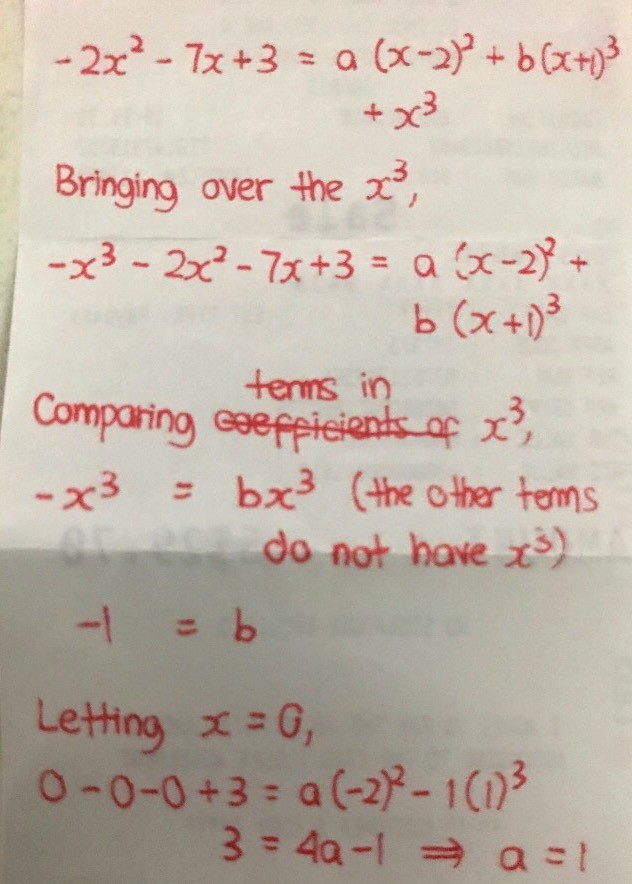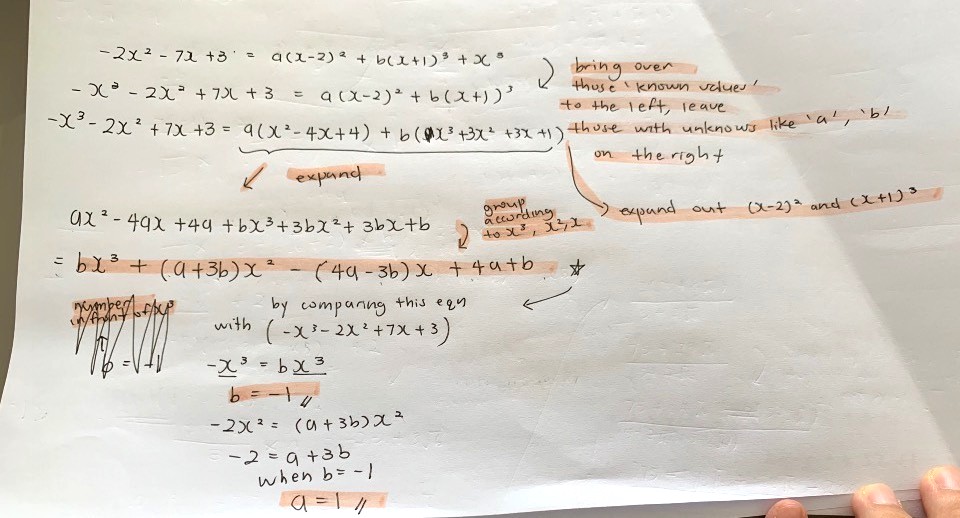Ask Singapore Homework?
Upload a photo of a Singapore homework and someone will email you the solution for free.

See 2 Answers
done
{{ upvoteCount }} Upvotes
clear
{{ downvoteCount * -1 }} Downvotes
This is just one of the many ways to approach this question.
For such questions, two methods are regularly used. One is the comparing of relevant terms of x in the same power. The other is to substitute a specific value of x to the entire equation. You can use a single technique or a mix of both techniques or even use any other logical technique to obtain the values of the unknowns.
For such questions, two methods are regularly used. One is the comparing of relevant terms of x in the same power. The other is to substitute a specific value of x to the entire equation. You can use a single technique or a mix of both techniques or even use any other logical technique to obtain the values of the unknowns.
Date Posted:
4 years ago
Hi! I really liked the method u used, i actually used another method to help answer this persons question, I just uploaded a pic of it. Is my method correct too? I got the same ans as you
done
{{ upvoteCount }} Upvotes
clear
{{ downvoteCount * -1 }} Downvotes

Hope this helps
Date Posted:
4 years ago
The full expansion method is definitely correct and is the ultimate method of solving such questions, since it lists out all the possible combinations of terms arising from the expansions.
Agreed, I think this method (though Long) will be easier to understand right ? Tho is leaves lots of room for careless mistakes since lots of exapnsion
I presume this is the easiest method to understand for most people since we have listed out the combinations and can compare a like-to-like head on comparison of terms on both sides of the equation.
A good student solving such questions should not make elementary careless mistakes for such expansions.
A good student solving such questions should not make elementary careless mistakes for such expansions.







